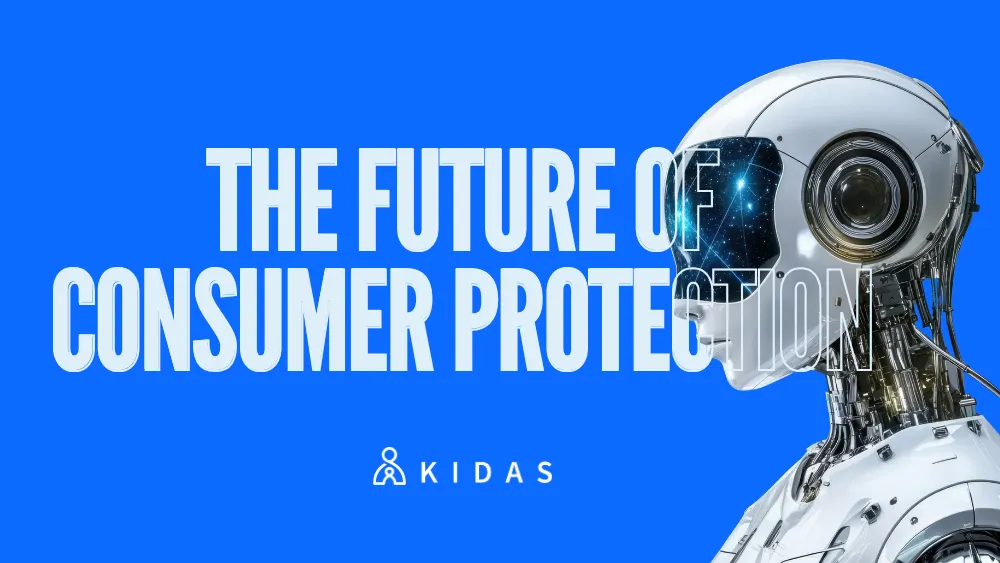Consumer scams are no longer an occasional annoyance. They’ve become the fastest-growing category of cybercrime worldwide. In the United States alone, the FTC reported that Americans lost over $10 billion to fraud in 2023, the highest amount ever recorded and a 14% increase from 2022.
Behind these numbers is a disturbing reality:
Fraudsters are using artificial intelligence to scale operations and create scams that are virtually indistinguishable from legitimate communications.
AI-generated phishing emails, cloned voices, and deepfake videos are tricking even the most vigilant consumers.
This trend impacts every corner of the consumer protection ecosystem. Telecoms and ISPs, VPN Providers, Password Managers, Digital Protection, and Identity Monitoring Companies all face the same challenge: consumers assume they’re being protected against scams, but most existing tools don’t deliver that protection at the point of attack.
The next era of consumer protection will be defined by AI-powered scam detection.
Where Traditional Solutions Fall Short
Every type of provider plays an important role in consumer safety. With that said, none are fully equipped to address the rising wave of AI-driven scams on their own.
- VPN Providers protect privacy by encrypting traffic, however they don’t stop phishing texts, fraudulent website or deepfake video calls. Consumers often assume that if they are using a VPN, they have fully protection which leaves a dangerous gap.
- Password Managers secure credentials to protect usernames and passwords from being compromised. However, scams often work by tricking users before they type in their password. A fake login page can still capture the credentials putting users at risk.
- Credit Monitoring and Identity Services are critical for detecting fraud…after the damaged has already happened. In most cases, they are reactive rather than proactive.
- Digital Protection Platforms offer broad security bundles that offer protections like VPN’s, antivirus, ID monitoring and more, but they don’t stop scams as they happen.
- Telecom and ISP’s get people connected and are one of the most important providers in consumers eyes. Connection allows for delivery of most scams through SMS, calls and email. Many offer add-on security suites for things such as dark web monitoring, but they rarely address scams in real time.
Across the board, there’s a trust gap:
Consumers think these tools protect them from scams, but in reality, they don’t.
AI as Both the Threat and the Answer
Artificial intelligence has become a double-edged sword in the battle of scam vs scam detection.
- The Problem: Fraudsters use AI to generate realistic texts messages, clone voices and even create deepfake video calls. These scams scale faster, adapt quickly, and exploit human trust in ways that old fraud tactics never could.
- The solution: Security providers use AI to analyze massive volumes of behavioral and contextual data, identify subtle signals, and detect anomalies in real time that humans would miss.
The future of consumer protection will hinge on who levergaes AI more effectively, the attackers or the defenders.
On-Device AI Scam Protection: The Missing Layer
Traditional approaches like traffic inspection or centralized data analysis raise significant privacy concerns and create scalability challenges. Consumers are increasingly skeptical of solutions that require handing over more of their data.
On-device AI-powered scam detection offers a smarter, privacy-preserving alternative:
- Real-time defense: Detects phishing, fraud, and deepfake attempts across SMS, email, browsers, and messaging apps the moment they occur.
- Privacy by design: Runs entirely on the user’s device, with no traffic inspection and no personal data collection.
- Simple value message: Easy for providers to market with consumer-friendly language: “We help you avoid scams before you engage.”
This approach not only aligns with consumer expectations but also fits seamlessly into the existing value propositions of VPNs, password managers, telcos, and digital protection platforms.
The Business Case Across Sectors
Adding scam protection isn’t just about security, it’s about growth, retention, and differentiation.
- VPN providers: In an increasingly crowded market, scam detection provides differentiation and supports upsell into premium tiers.
- Password managers: Expanding beyond password security into scam prevention makes them more relevant as all-in-one security hubs.
- Digital protection platforms: Scam detection rounds out their offerings, enabling a stronger “complete protection” narrative.
- Credit monitoring/ID providers: Moving from reactive to proactive defense gives these companies a new competitive edge and consumer peace of mind.
- Telecoms and ISPs: Proactive scam protection reduces churn, aligns with FCC regulatory pressures, and enhances customer trust.
Across all categories, the ROI is clear: scam protection strengthens customer loyalty, creates new revenue opportunities, and builds brand leadership.
The Road Ahead
The consumer protection market is consolidating. Many companies already bundle VPNs, password managers, credit alerts, and antivirus into a single subscription. But as scams continue to rise, consumers will increasingly demand scam protection as a standard feature.
Industry convergence makes scam detection the natural “glue” that ties together privacy, identity, and digital safety. In the AI era, consumers won’t ask for separate solutions, they’ll expect a unified defense. The companies that act early will define the new benchmark for digital trust. They’ll move scam protection from an optional add-on to a core expectation, the same way encryption or antivirus once evolved from nice-to-have to must-have.
Conclusion
Scams are the fastest-growing threat consumers face. The providers who step up, whether they’re VPN companies, password managers, telcos, identity protection firms, or digital security platforms, will not only protect their customers, but also win in retention, revenue, and reputation.The future of consumer protection is AI-powered scam detection. Those who embrace it today will set the standard for trust in the years ahead.
If your company is exploring how to integrate scam detection into your consumer protection suite, let’s connect.
